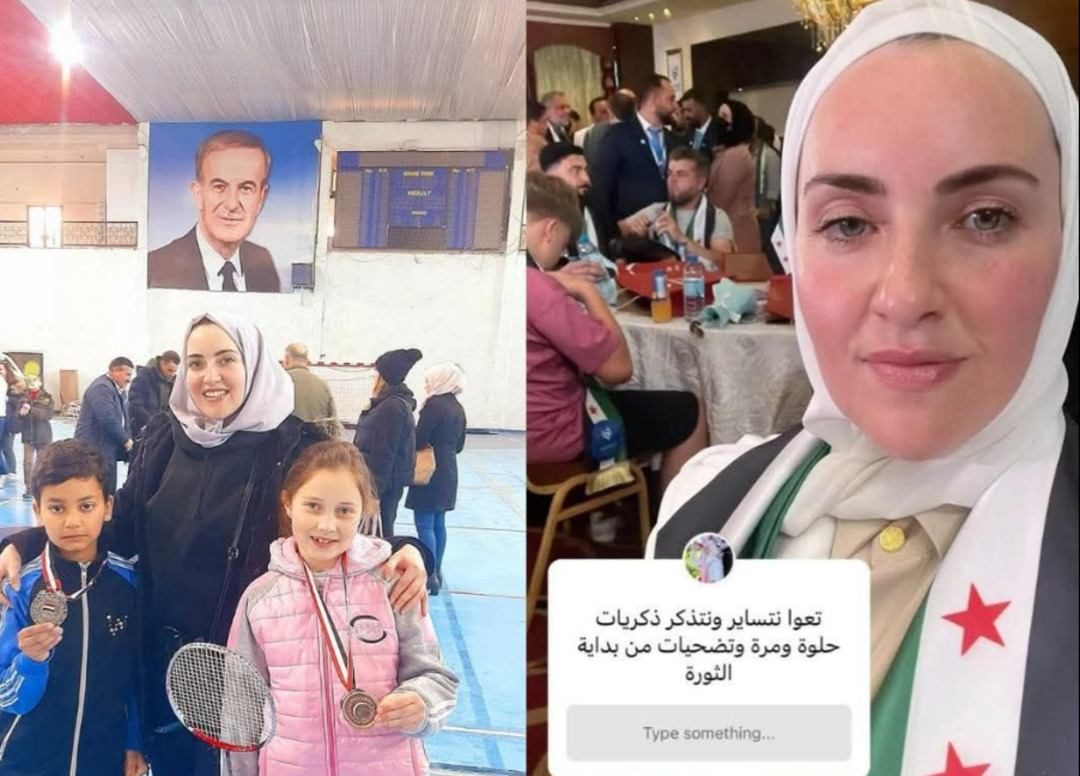-
Prosecuting Journalists and Activists Following Complaint from Regime Loyalist

The Al-Hamidiyah Police Department in Homs has issued several summons via WhatsApp targeting a number of revolutionary activists and journalists. This action follows a complaint received from a figure affiliated with the Assad regime, who had recently been active in the Homs neighborhood under the guise of charitable work.
Specifically, 12 media activists and journalists were summoned on the night of Sunday, June 15. The summons came after criticisms directed at a woman named "Hiba Sabouh" through a secret activist group in Homs. The focus of the criticism was her past affiliations with regime-aligned figures and her activities linked to pro-regime entities. These summons caused wide shock within both the media and civil society communities, especially after leaked conversations revealed that the criticisms were not personal attacks, but due to her involvement in sponsoring a crowd gathering at the Clock Square in Homs.
"Sabouh," who has worked as the director of volunteer teams and was active during the Assad regime’s era, is known for her unwavering loyalty to the regime and her close ties with security officials. Her name features in networks of influence and corruption, and she is involved in systematic theft and illegal exploitation of relief aid to serve her personal interests and small networks.
Consistent testimonies from Homs activists reveal tangled relationships between her and security officers, particularly Major General Hossam Luqa, Brigadier Adib Suleiman, Brigadier Samer Khattab, and Brigadier Mohsen Saoud. She frequented their offices and is known for her influence that extends beyond mere coordination to include threats, exploitation, and blackmail, with confirmed direct influence in security decision-making circles.
In terms of business ventures, Sabouh participated in private projects, including a partnership with a engineer from Masyaf named Ali Al-Hassan in a beauty center, despite suspicions about the sources of her income and the benefits she gains—especially since her partner works in a local municipality. This raises questions about mutual benefits and abuse of influence.
Regarding her support stance, "Hiba" claimed to be on the side of the Syrian revolution after it erupted, but she was close to “Asma al-Assad” and her corrupt associations. She was repeatedly seen providing aid to the families of regime-affiliated fallen soldiers—an act viewed as a clear betrayal of the martyrs’ blood, and an attempt to whitewash the killers of civilians through a superficial humanitarian façade.
In her academic life, colleagues and professors from the College of Arts, Department of English Language, confirm that her personal connections with faculty members helped her excel and obtain privileges without genuine academic merit.
This figure, "Hiba Sabouh," starkly represents a penetration within civil society by individuals with security backgrounds and dubious ties, who exploit humanitarian rhetoric to enhance their image and influence. This necessitates an investigation into her funding sources and connections, as a lawful right of the public and a crucial step toward uncovering corruption networks still extorting the revolution from within.
Following the collapse of the Assad regime, some former thugs have turned into malicious complainants against revolutionaries and the families of martyrs—transforming tools of repression and blackmail into legal and social mechanisms. This phenomenon, where the oppressor pretends to be the plaintiff, poses a real danger to our collective memory. It underscores the urgent need to activate laws of political isolation, strengthen judicial independence, and document revolutionary history to prevent distortion of facts and falsification of the past.
Tags
You May Also Like
Popular Posts
Caricature
opinion
Report
ads
Newsletter
Subscribe to our mailing list to get the new updates!






















